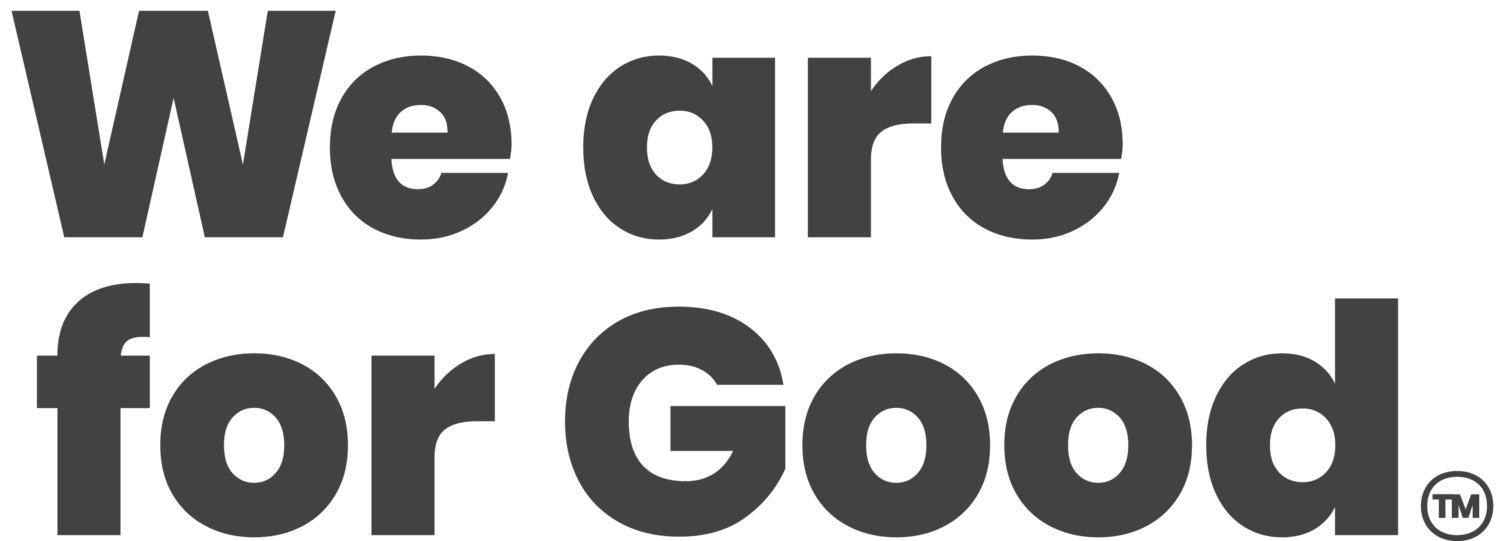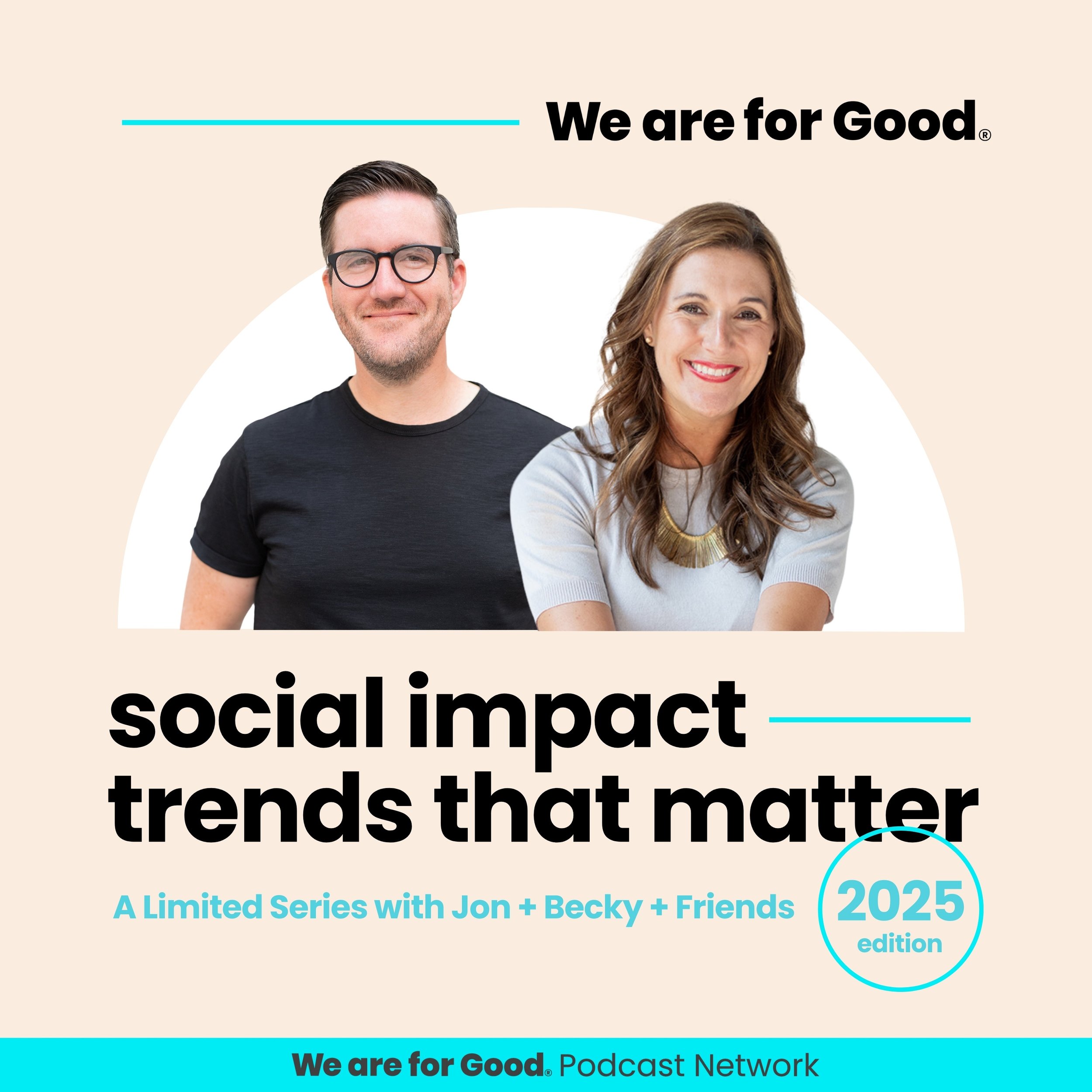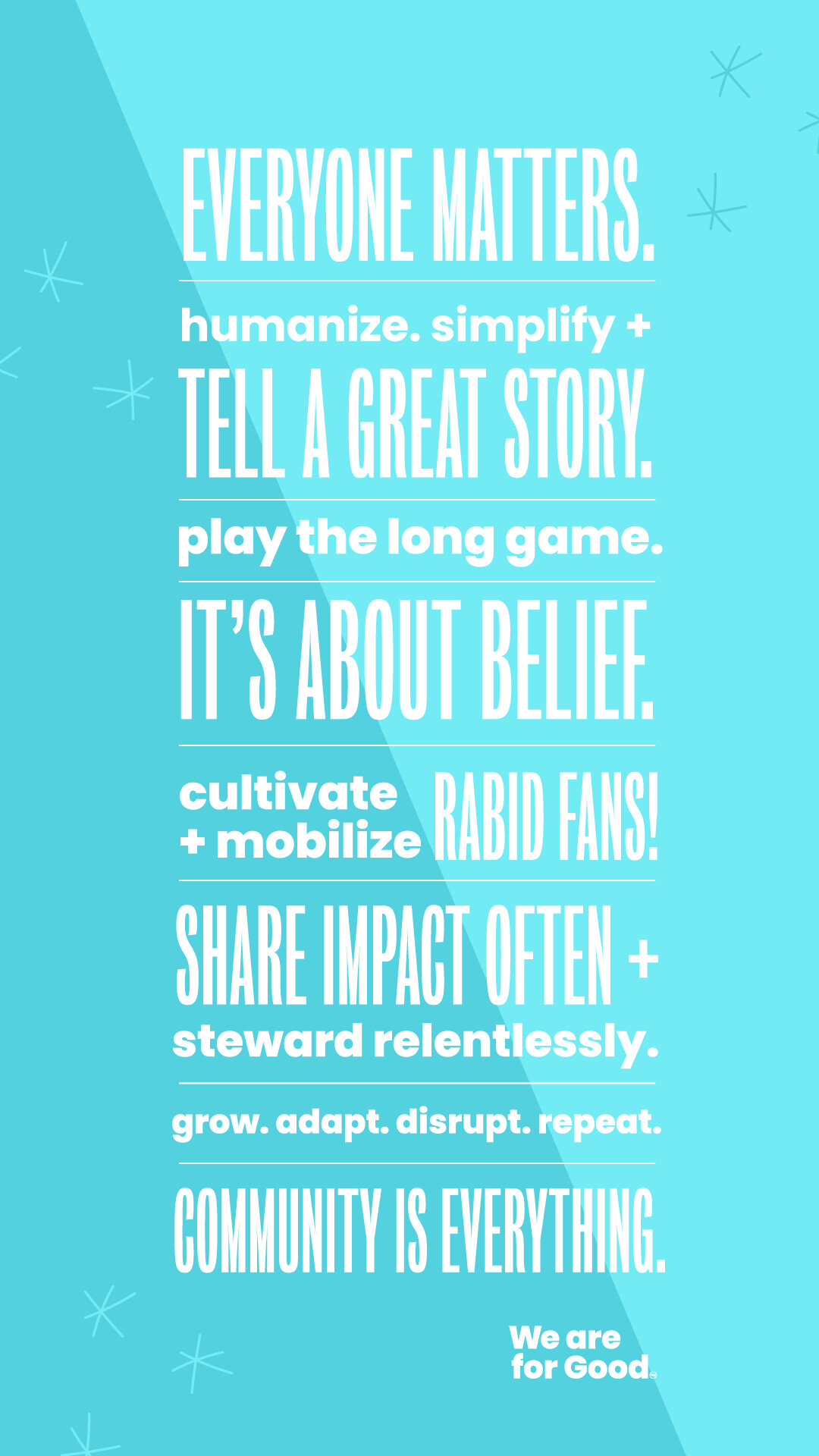186. Storytelling for Social Impact + Building Narrative Intelligence - John Trybus
Listen to this episode
Overview
Meet John. He's got a couple of titles: social impact professor, executive director of Georgetown University's Center for Social Impact Communications, 🐵Jane Goodall's personal advisor, and a social strategist, just to name a few. He's breaking down the key elements of nonprofit storytelling and teaching us how to embrace a story's blur. No shock he's bringing incredible stories to this convo. Tune in🎧
Today’s Guest
John D. Trybus, Executive Director and Professor, Georgetown University Center for Social Impact Communication
“So amongst the reasons why I’m fascinated by stories is because they help us make sense of the complexities of life. They are a vehicle of meaning making.”
Episode Transcript
Download Full Episode Transcript Here
Episode highlights
John’s story and journey to where he is today (3:00)
John’s research around storytelling (10:00)
The 5 essential building blocks of compelling stories (14:00)
Formal vs. informal storytelling (19:00)
Thinking of storytelling as an ecosystem (22:00)
An applied example from John’s work (24:00)
“Embracing the Blur” for deeper social impact (35:00)
A powerful moment of philanthropy in John’s life (39:00)
John’s One Good Thing: Experiment. Try different things. (47:00)
Powerful quotes
“I eventually got up to meet Jane Goodall. And she wrote in my book, follow your heart.” -John
“So amongst the reasons why I'm fascinated by stories is number one, because they help us make sense of the complexities of life, they are a vehicle of meaning making.” -John
“Obviously, the world is extremely complicated. As we think about social impact issues. They're really intertwined. How do you make sense of them. But storytelling is one of the ways in which we can connect as human beings.” -John
“There is space and storytelling for what's different.” -John
“What we as humans can uniquely do through stories is to remember the past to talk about the present, and even to envision a future that doesn't exist yet.” -John
“We are also abusing the term story within the sector is that we're calling everything almost a story, whether it is or is not.” -John Trybus
“Character is a central ingredient is that a story is actually about a person.” -John
“How do you want people to feel when you're communicating a story?” -John
“If you can't capture people's attention, they're not going to want to listen to the rest.” -John
“And so what I see a lot with the research that I'm doing, which I'd like to break out of this paradigm, as a sector, is that sometimes and we don't even realize it, we're taking ownership of other people's stories, again, sometimes for that fundraising benefit that we're trying to have in an organizational setting, but who actually owns a story.” -John
“Not all of us consider ourselves to be a storyteller, but in reality, we are, at least according to the narrative paradigm theory.” -John
“So in a nutshell, what the narrative paradigm theory says is that it's in contrast to the rational world paradigm, thinking about logic in traditional terms. Instead, we make sense of the world through stories, their narrative fidelity, and coherence. And we judge things that we encounter based on that. And that we really are all storytellers, and story consumers.” -John
“Really, what I would call narrative intelligence, is really being aware of all of these factors at play, it's much more complex than I think meets the eye.” -John
“You have these formal organizational stories that go on the website, especially that go into the donor appeals. But we have all these informal stories that are also happening, perhaps behind closed doors within the organization.” -John
“So often with our work, we look externally with stories, but we also need to look internally, not just that external change that we're going for, but what might be some internal change that we need to be doing within our organizations?” -John
“What are people talking to you about? Friends, family colleagues, what are they texting you about? What are those stories that your partners and community members within your organization are telling you, because that really starts to help us understand how our stories influencing us in internally, which then really impacts the influence of stories externally, as well.” -John
“When you ask people to start the self work, understanding themselves first then understanding how they bring value to the company. To me, the story lifts from the bottom up, and that is the power because we're getting their words, their point of view, we're seeing their passion come through and the story becomes so much richer.” -John
“We've got to embrace the blur and understanding those issues from that perspective. The blur also works as we think about the social impact sector as a whole. Nonprofits, of course, are a key part of that, but they're not the only ones. We've got to embrace the blur that it's other organizational types responsibility as well to contribute to social impact and what progress we can have when they work in tandem, or in partnership, collaboration together.” -John
“And that really gives me so much hope as a moment in time right now that I truly hope and I do believe is going to carry on to that future is that just infusion of a philanthropic mindset that we can all be part of the solution but we also challenge things that are happening in society right now.” -John
“You know, it's really a ripple effect. Take that example, and put it within your own setting, and within your own nonprofit. So what is that American Red Cross effect? What is that Sierra Club effect? What does that Humane Society effect? I really do believe it goes back to storytelling, yes. And also just that human connection, and there's no substitute for spending the time investment in doing just that. So as we think about fancy strategies, and tactics, got to include that human connection piece of it as well. It's, it's, it's the only way as part of that ecosystem.” -John
The 5 Essential Building Blocks of Compelling Stories
Georgetown University Center for Social Impact Communication - Stories Worth Telling Report
Character
Trajectory
Authenticity
Emotions
Hook
Bonus: The Storyteller
connect with john and georgetown
Rate, Review, & Follow on Apple Podcasts
Are you a fan of the We Are For Good Podcast? Please consider rating and reviewing our show! This helps us serve more do-gooders — just like you — grow their own impact uprising.
First time doing reviewing a podcast? Don’t sweat - it’s super easy! Click here, scroll to the bottom, tap to rate the show with stars, and then click “Write a Review.” We’d love to hear what you loved most about this episode!
While you’re there, if you haven’t done so already, would you consider subscribing to the podcast? We curate inspiring conversations weekly to help you do more for your mission (and the occasional surprise minisode too!) and if you’re not subscribed, you could totally out. Subscribe now!
Join the Good Community!
The We are for good community
This is a safe place for deeper conversations. While we love this podcast, it is a very one-sided dialogue. It is great for starting conversations, but not continuing them. You can find friends, colleagues, and others to champion alongside. We believe community is everything and we wanted to create a place where people could learn and thrive and grow together (and also have a whole lot of fun).




















